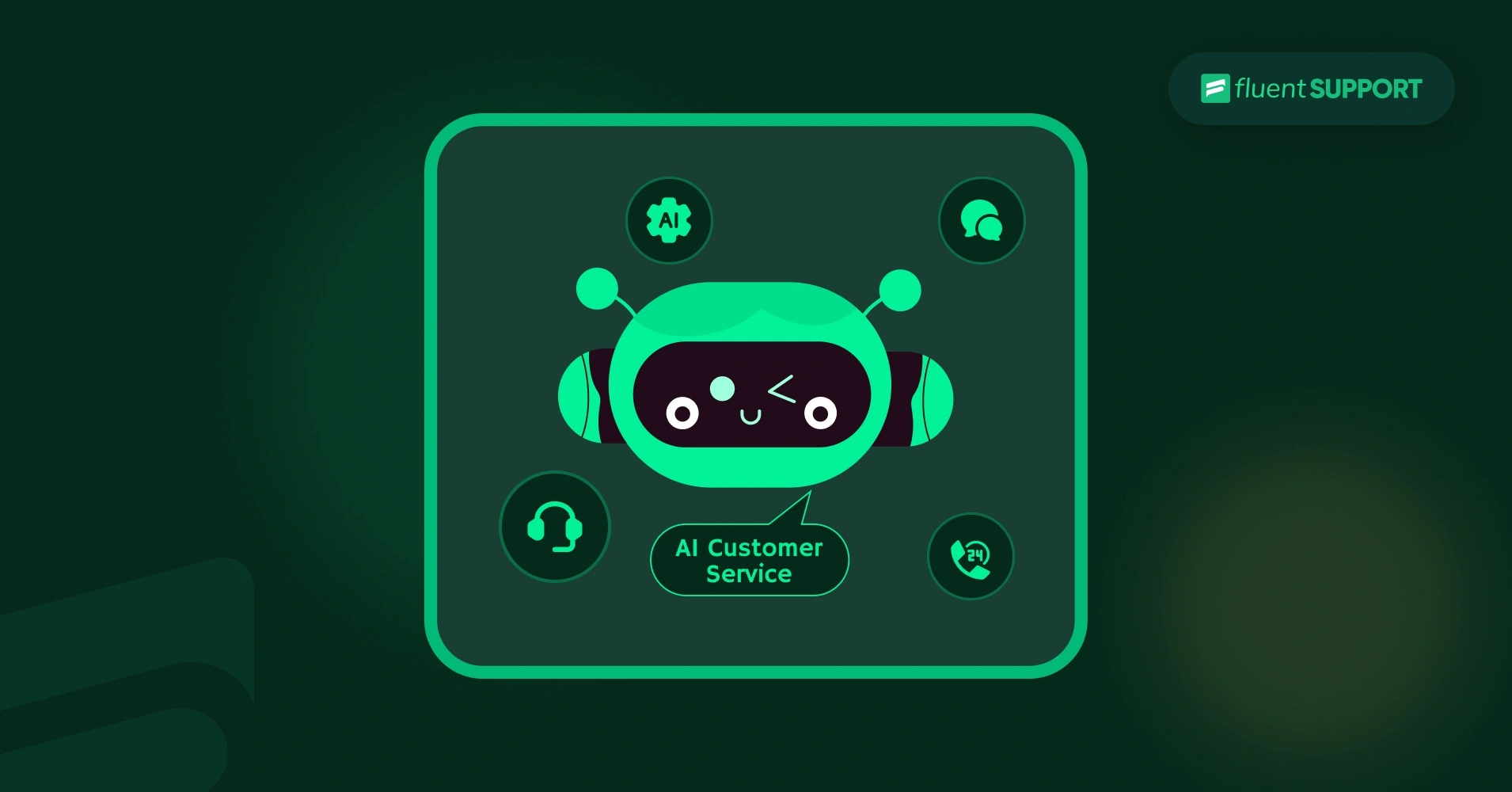
How to Use AI in Customer Service Successfully
By Prosanjit Dhar
December 18, 2024
Last Modified: January 6, 2026
AI is evolving how customer service interacts with customers. From automating repetitive tasks to assisting support agents in regular activities.
According to Hubspot, “92% of companies have reported improved response times since adopting AI.” And, it’s not just about response time; AI is making your overall customer service efficient and personalized.
What does AI in customer service mean?
AI in customer service refers to the application of artificial intelligence tools to streamline the support process and enhance customer interaction.
This includes automating routine tasks like ticket summarization, generative replies, analyzing sentiments, and more. Ultimately, improving the quality of customer service as well as personalized interaction.
The key benefits of AI customer service
Incorporating Artificial Intelligence (AI) not only improves your support quality but also brings multi-layered benefits to the overall support ecosystem.

Here are some of those.
1. 24/7 availability
AI tools don’t have limitations like humans. If you train them properly, they can operate your support around the clock without compromising the quality or consistency.
This ability ensures your customers receive immediate assistance, no matter which country or time zone your customers belong.
2. Personalization capabilities
AI can also understand individual preferences and behaviors by analyzing vast amounts of customer data.
Such as,
- Machine Learning (ML) Algorithms: Predict behaviors or preferences based on past customer data.
- Natural Language Processing (NLP): Understand customer queries and responses in text or voice form for improved communication.
- Sentiment Analysis: Identifies the emotional tone behind customer messages (positive, neutral, or negative).
- Predictive Analytics: Analyzes historical data to forecast future customer behavior.
- Recommendation Systems: Provide personalized product or service suggestions based on customer preferences and behaviors.
- Behavioral Analytics: Tracks user interactions (e.g., clicks, purchases, or inquiries) to map customer journeys and identify patterns.
These can assist your agents in understanding customers’ sentiments and needs more precisely.
So, agents can align their conversion according to customers’ mood and make customers feel more valued.
3. Increase productivity and efficiency
Besides personalization, AI can boost both productivity and efficiency at the same time. It can analyze customer tickets and provide insights based on queries.
Also, it can resolve customer tickets through advanced algorithms and natural language processing without agent involvement.
So, whenever a handoff is needed, these tools can guide agents with valuable insights, suggested actions, and much more.
4. Reduce operational costs
Even many tech giants are leveraging AI customer service to reduce their operational costs. And why not?
For example, Fluent Support integrates OpenAI to summarize tickets and generate replies. This integration not only speeds up resolution time but also lowers the need for additional support agents.
So that companies can stay focused on their resources for skill development and training.
5. Eliminates human errors
Lastly, AI doesn’t get tired, distracted, or make emotional decisions. Instead, it relies on data, facts, and reports to make professional decisions.
So, agents can easily overcome common human errors with this ability. Furthermore, it can monitor potential issues and flag them at an early stage.
But how can these benefits be real for your own customer service?
How to use AI in customer service?
While AI in customer service isn’t a new concept, many companies are still lacking in the adoption and the best usage of AI.
Here are some best uses of AI that you may try.
1. Use chatbots to provide real-time support
At first hand, Chatbots are among the most effective implementations of AI in customer service. These are automated messaging systems that can simulate human-like conversations and provide 24/7 customer support.
Unlike traditional chatbots, these chatbots use natural language processing (NLP) and machine learning (ML) to understand user intent, analyze queries, and deliver contextual solutions instantly.
Moreover, these chatbots can also navigate users and troubleshoot common problems. This automation eventually enables faster response times (FRT) and quality support.
2. Get instant suggestions during customer interactions
During a support conversation, AI can generate suggestive responses based on the content of the conversation.
These suggestions are often based on historical data, commonly asked questions, or pre-defined templates.
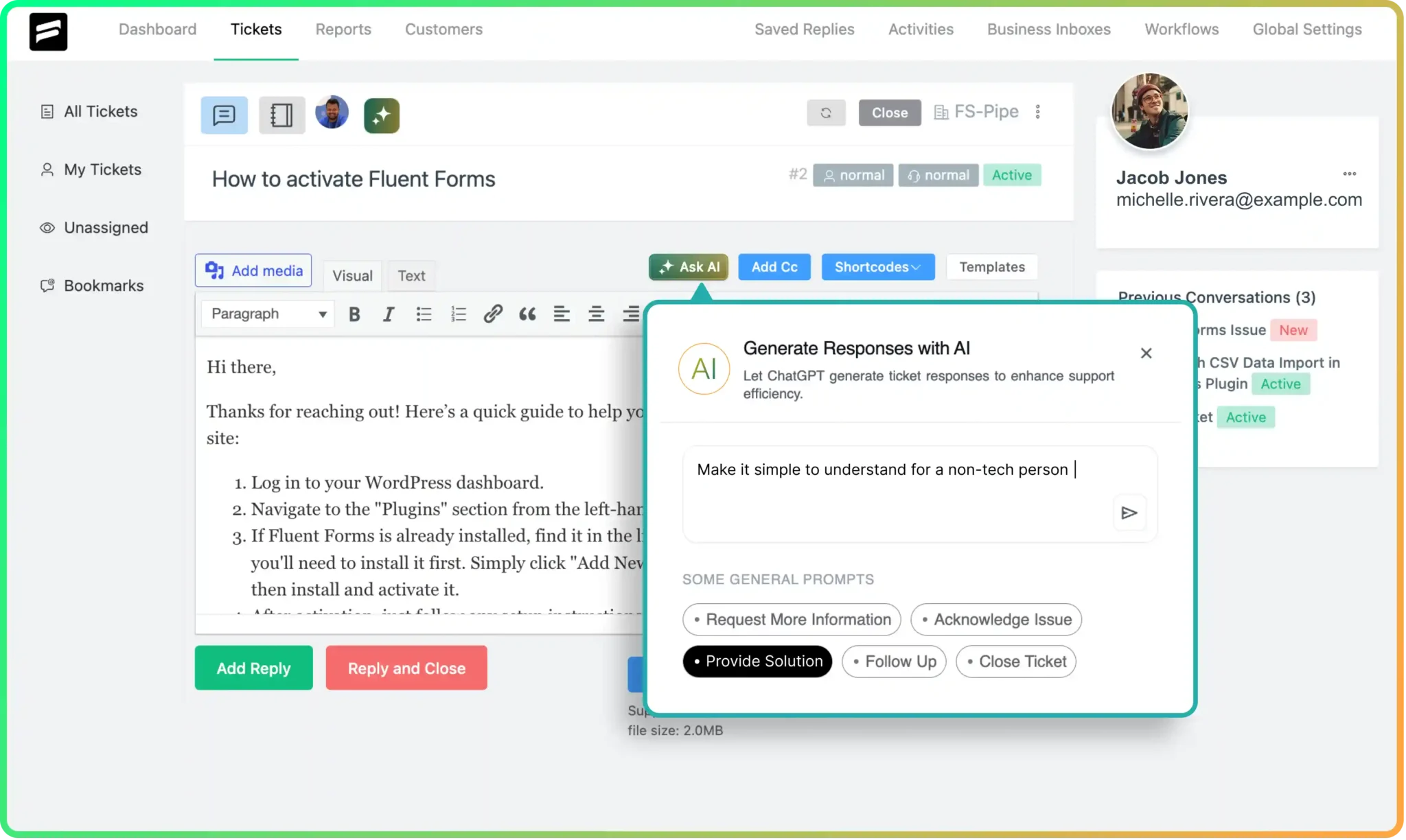
Besides, these tools can also generate message summaries that give agents an instant overview of what they are dealing with.
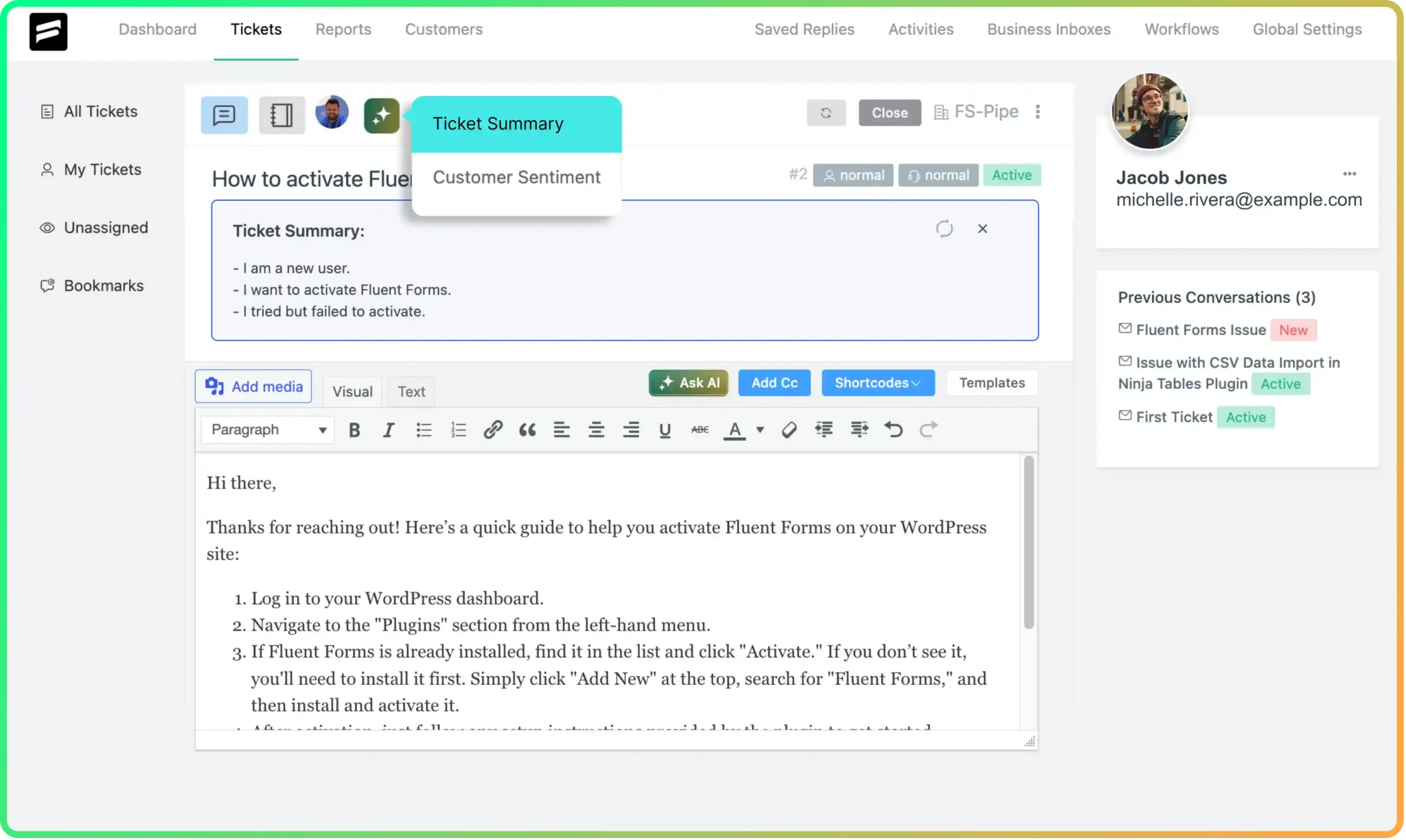
These ready-made responses and summaries save a lot of time and enable consistency in customer interactions.
3. Predict customer needs with AI analytics
AI’s predictive analytics has recently been in hype. By analyzing patterns in support tickets, it can identify recurring issues or bugs early on.
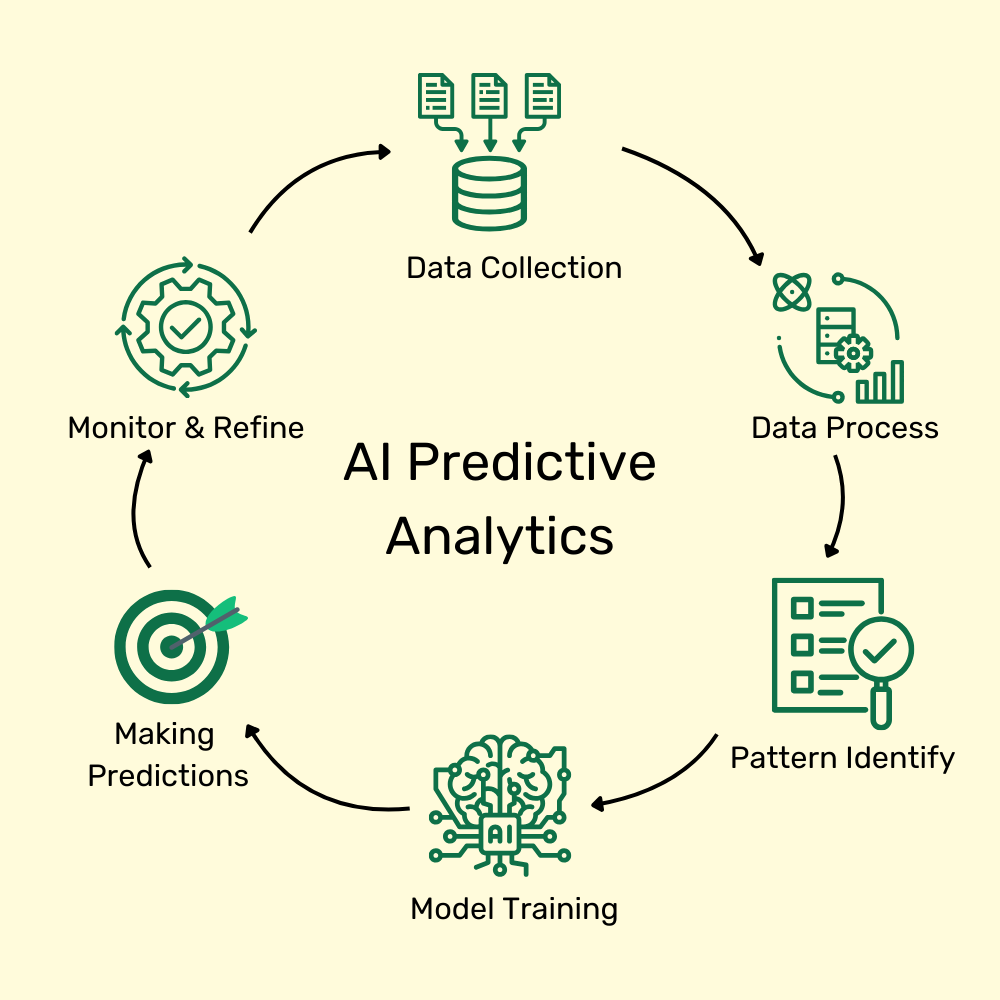
So, the support team can resolve problems before they escalate. Just like anticipating customer needs before they even arise.
It can also forecast customer churn rates, predict demand, and help you stay well-prepared.
But there’s another AI tool that is also becoming very popular in the customer service industry!
4. Understand conversation tone with sentiment analysis
That’s sentiment analysis! It can extract the emotional tone or opinion expressed in a piece of text, whether it’s positive, negative, or neutral.
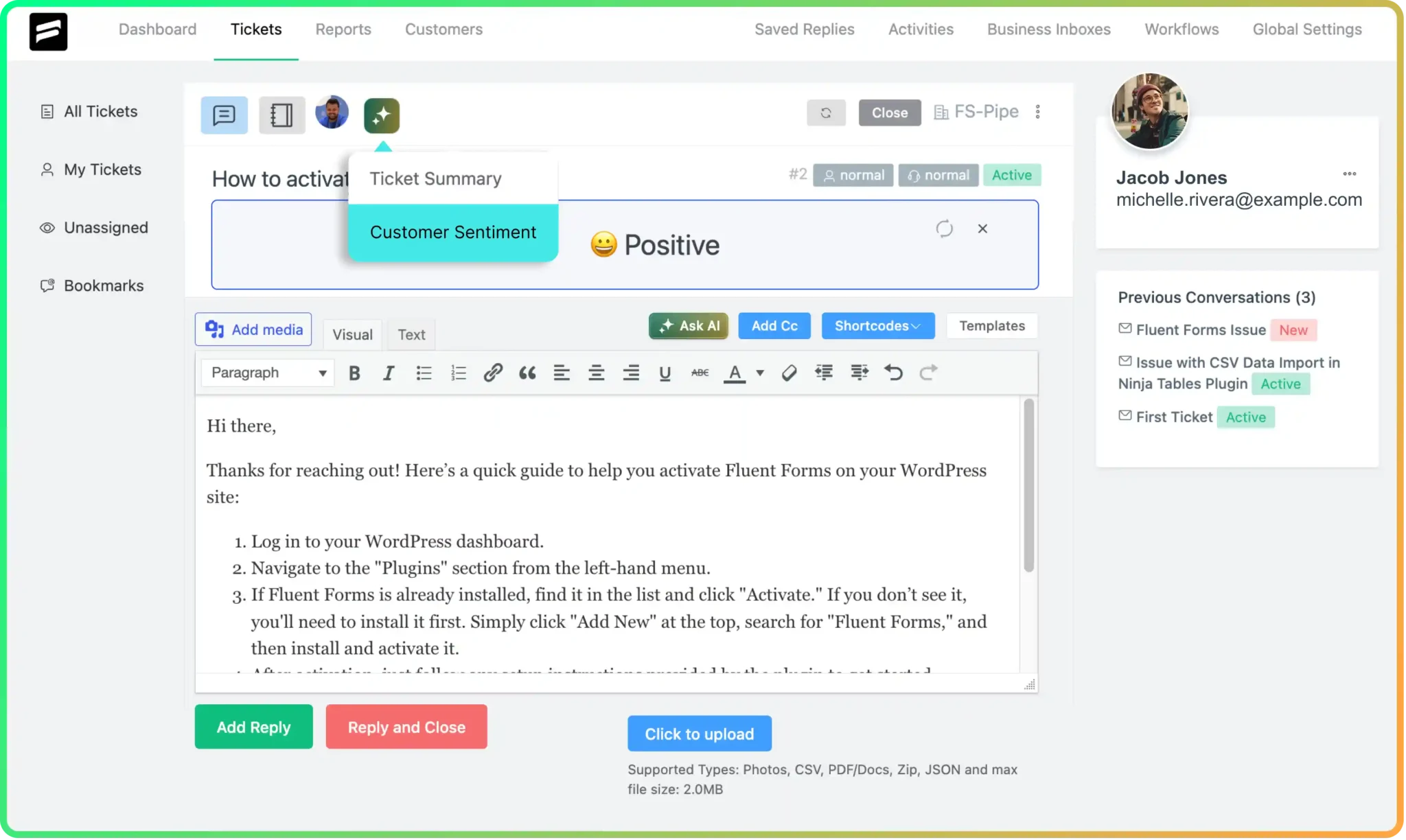
This unique ability gives agents real-time insight into customers’ moods while running a conversation. So, the agents can adjust the response tone accordingly.
And, lastly!
5. Leverage AI agents to make efficient customer service
AI agents are autonomous software systems that use artificial intelligence to perform tasks on behalf of users. Maybe it sounds similar to the chatbots mentioned above. But it’s more than that!
They not only engage in chat but also perform actions like processing requests, making decisions, or interacting with other systems. Overall, it’s a full package that can assist a support agent in every aspect.
So, these are some effective uses of AI in customer service. However, there are several things to consider when implementing AI-powered customer service.
What to consider when implementing AI-powered customer service?
One of the most important things is to make sure that you have the right budget and resources. There are definitely some initial costs to incorporate intelligent systems like artificial intelligence.
But there are some other factors as well, specifically for your customer service.
- Training and skill development: You have to train both the AI system and your support team to work collaboratively and maximize the benefits.
- Customer acceptance: AI does have limits. But in customer service, you need to make it clear what they might accept from this system and what not. So, your customer might not misinterpret it.
- Data security: Security is always a concern, and in customer service, it should be top-notch. Implement security measures like encryption, access controls, and regular audits to protect customer information.
- AI system selection: Look for AI systems that are trained on customer conversations. So you might not undergo the hassle of an inappropriate communicative tone.
- Budget planning: AI will reduce your operational costs, but not at the starting point. That’s why creating a good budget plan is important to avoid any unexpected money problems.
If you keep these factors in mind, then AI can be the biggest boost for your customer service and business overall.
Final thoughts
Whenever we talk about AI, one common question always arises! Will AI replace humans? Or, in this case, your customer service team?
The answer is no, AI will not replace customer service. However, if it’s utilized properly then AI can become a valuable asset to run your customer service operations.
It won’t just provide 24/7 support to your customers but also serve as a personal assistant to every support agent.
And honestly, who wouldn’t want a powerful assistant like AI?






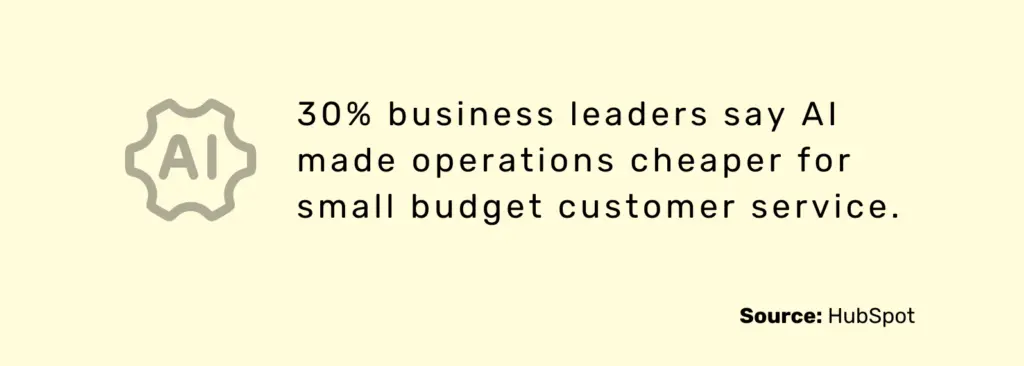







Leave a Reply